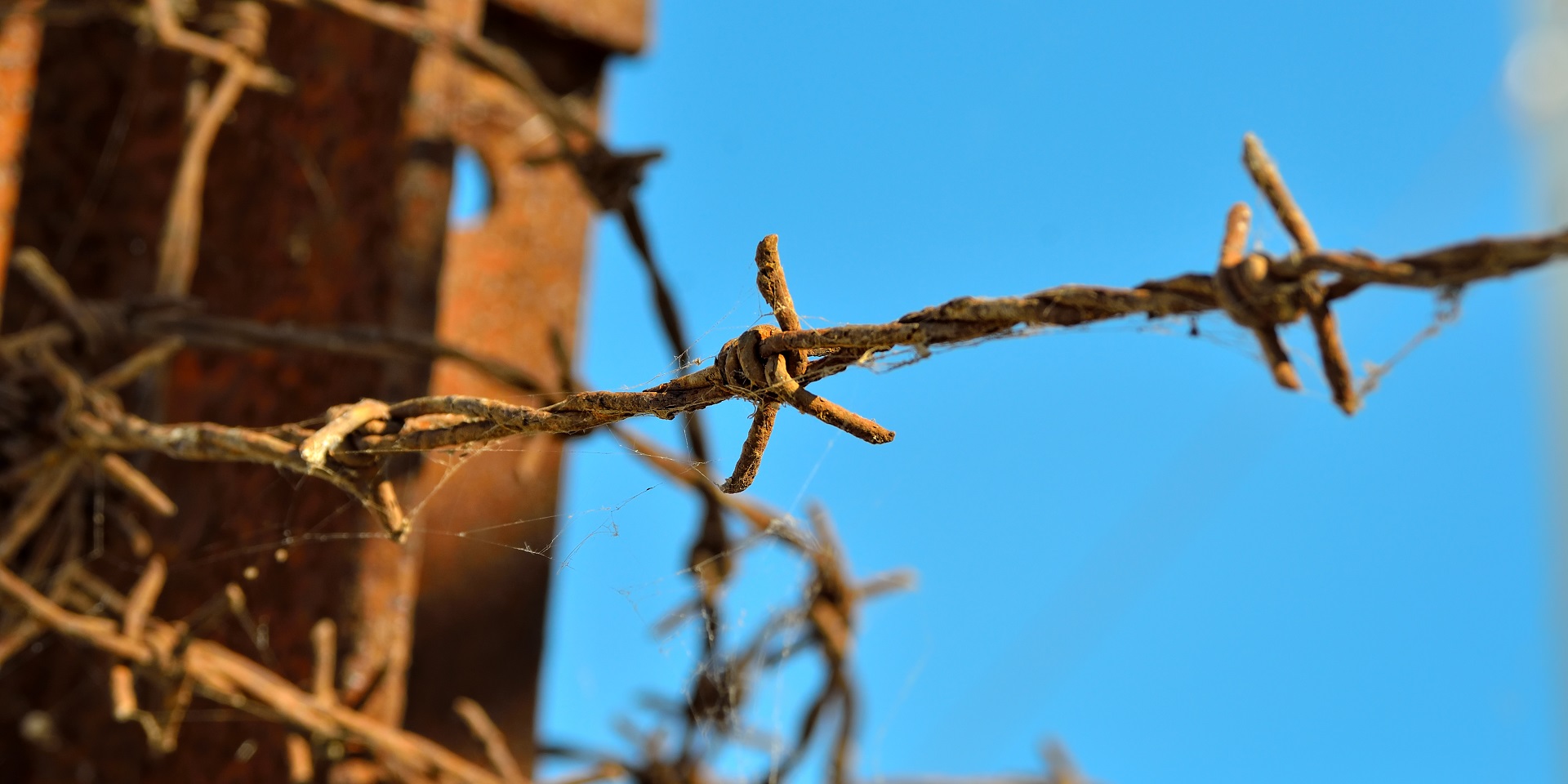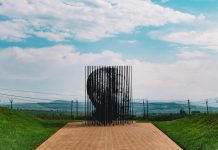Courage is a special virtue: unlike other virtues that can be formed and polished over time, courage only makes itself known spontaneously and fully in situations where one is required to act, proving its existence.
What if it is missing then, precisely in moments of tension, threat, suffering, or great tribulation? How can we get it? What is its source? And, when is courage justified? Here is a story that tells us all about it.
“Do not be afraid!”
His name was revealed 50 years after his anonymous deeds, full of dignity and humanity, which took place in 1944-1945. During these two years, he was an officer in the Hungarian army, allied with the Nazi army, having under his supervision 140 Jewish prisoners working in a camp on German-occupied Russian territory.
As the front continued to retreat to the west, the officer was ordered to send all prisoners to German camps, which would have meant their death sentences. “Do not be afraid,” he told those he had treated as his comrades. “We won’t go to Germany.” He promised to take care of them and kept his promise until the end, when they all returned to their homeland, Hungary, in 1945. “In fact, we were never taken care of so well anywhere,”,[1] former prisoner Morton Fuchs said.
How reassuring that “Do not be afraid!” must have sounded to a prisoner’s soul, in the middle of a bloody and meaningless war, in a miserable, futureless existence!
They marched for hundreds of miles, taking shelter in the woods or on farms, where they helped gather the harvest in exchange for food and shelter. They also went by train, escaping bombing. They hid in the cellars of garrisons where the blood-soaked walls testified to the executions and tortures from which they had been spared. Finally, they arrived in their homeland.
These prisoners trusted the Hungarian commander so much that they did not even try to escape. On the contrary, when six Hungarian policemen forced him to go to Germany with the whole group, under guard, they escaped at the initiative and command of their protector, and were spared from death.
At one point, they realised that the liberating Russian soldiers were approaching them. The Jews asked their benefactor to change his incriminating Hungarian uniform into civilian clothes, as all the military did, but he refused, with unusual courage, saying:
“I haven’t done anything wrong. I have nothing to be ashamed of. I am proud to have saved the lives of you men.”[2]
Without listening to any pleas in his favour, the Russians took him prisoner and nothing was heard of him ever since.
The facts call for a name
Two survivors, Morton Fuchs and Isaac Guttman, recounted these long-standing events and the unbelievably thoughtful and encouraging behaviour of this Hungarian lieutenant.
The first was urged by his daughter, Marta Fuchs, to tell his story for newspapers and television shows in the United States, their country of adoption, as well as in the testimonies that finally materialised in Marta’s book.
The second, Guttman, Fuchs’ friend from the camp, had been especially protected by this friendly commander: because he was frail and sickly, but very pious, the commander relieved him of the hard work of cutting wood or breaking stone, and appointed him rabbi of their camp community, providing him with the kosher food he needed.
From the very beginning, he got along with everyone reasonably, never punishing them, respected their holidays, and fasted with them on Yom Kippur. He discussed Old Testament passages with them, reminding them that they were breaking the law if they smoked on the Sabbath. He never carried a weapon, and honoured every Sabbath, according to God’s command. “He was a Seventh-day Adventist,” Fuchs says.
However, after so many decades, the war survivors could not remember his name. Fuchs, however, had kept a picture of the man, which he had taken with him when he fled to the United States. In 1990, Marta Fuchs and her father began investigations into the mysterious saviour.
“In the midst of all the horror, this one man acted at great personal peril to save his fellow human beings. The world must know,”[3] Marta wrote.
Finally, they found out his name from a letter: Zoltán Kubinyi. Then Fuchs and Guttman sent their testimonies to the Yad Vashem Holocaust Museum in Jerusalem, to the department that honours the “righteous among the people” and makes known to the world their story of humanity towards the Jewish people.
“He was such a straight-thinking person.”[4] “Zoltán Kubinyi was a true human being in the deepest sense of the word,”[5] Fuchs said. They discovered that, when he was enlisted in May 1944, Zoltán left behind a wife, whom he had married in 1943, and a six-month-old boy. He would never see them again.
The two men contacted his son from Hungary, who was deeply moved by the statements of the former prisoners about what his father had meant to them. He confessed to them that his mother had kept an equally bright memory of him. She had died in 1988, but waited a lifetime for him to return to them, and she never considered herself a widow.
During a televised ceremony in 1994 in Budapest, Zoltán Kubinyi’s son was presented with a certificate and a medal posthumously honouring this “righteous man among the peoples,” number 4558 at Yad Vashem. No one found out the date or the place of his death. He is believed to have been killed by Russian soldiers in 1946 at the age of 45, his bones buried somewhere in a mass grave.
The human inside the humans
When we come across such uplifting stories about some of our fellow human beings, by contrast, the rest of mankind—who is “under the control of the evil one” (1 John 5:19)— with its bloody history, appears to us as a common grave: one belonging to those who have tried too hard to survive, forgetting that they are human beings and that a human being cannot want to survive at any cost; not at the cost of the lives of others, of the freedom of others, even that of loved ones; not at the cost of betrayal, mental degradation, the annihilation of human dignity; not by descending into the animal world, in the instinctive, or even below it, into what the victims of torture (of which the animals are not guilty) have called “bestiality”.
Ultimately, in the most dramatic situations, only courage can help us escape this mass grave.
It is the virtue and the weapon with which we are saved from ourselves, from the wickedness, the cowardice, or the smallness that is within comfortable reach.
From where can this uplifting courage be nurtured? Out of a greater love than the love for one’s own life and the lucidity of finding that it is not worthwhile to survive at all costs, by taking part in “the fruitless deeds of darkness” (Ephesians 5:11). From a stronger desire than the instinct of self-preservation, that of remaining a human till the end, consistently and with the belief that being truly human is the chance that the Creator has given to every human being, from all times and all places. From the certainty of the soul that the same Creator is also your Protector, who accompanies and strengthens you, as He promised, every day of the year, through the 366 biblical exhortations that say: “Do not be afraid!” From the conviction that when you do His will, your courage is not mere audacity, but receives transforming meaning and power, in spite of any hostile appearances and imminent threats.
It is this kind of courage that helped Pastor Richard Wurmbrand, when he was arrested and investigated, not to feel the slightest increase in his pulse at the threats made against him. He knew that the horrors and feelings anticipated by people would not come true, but only what God decides, so we should not allow them to discourage us.
“I tell you, my friends, do not be afraid of those who kill the body and after that can do no more. But I will show you whom you should fear: Fear him who, after your body has been killed, has authority to throw you into hell. Yes, I tell you, fear him” (Luke 12:4-5).
The same courage impelled Nicolae Steinhardt to have the initiative to present himself at the gates of the Securitate, with his luggage all packed, in order to be arrested. It was his dignified way of showing which side he was on, in a world where values were upside down and outsiders were often less free than inmates in cells.
The same courage inspired the young monk Arsenie Papacioc to declare that he would be willing to die for his faith in the existence of God, asking his atheist investigator if he would be willing to die for his firm conviction in God’s non-existence.
So, what would you choose: a cell in which you can remain a human, or the common grave of mankind, in which chains, crowns, swords, and shields all shine alike?
Corina Matei is a PhD lecturer at the Faculty of Communication Sciences and International Relations of the “Titu Maiorescu” University, Bucharest.



















